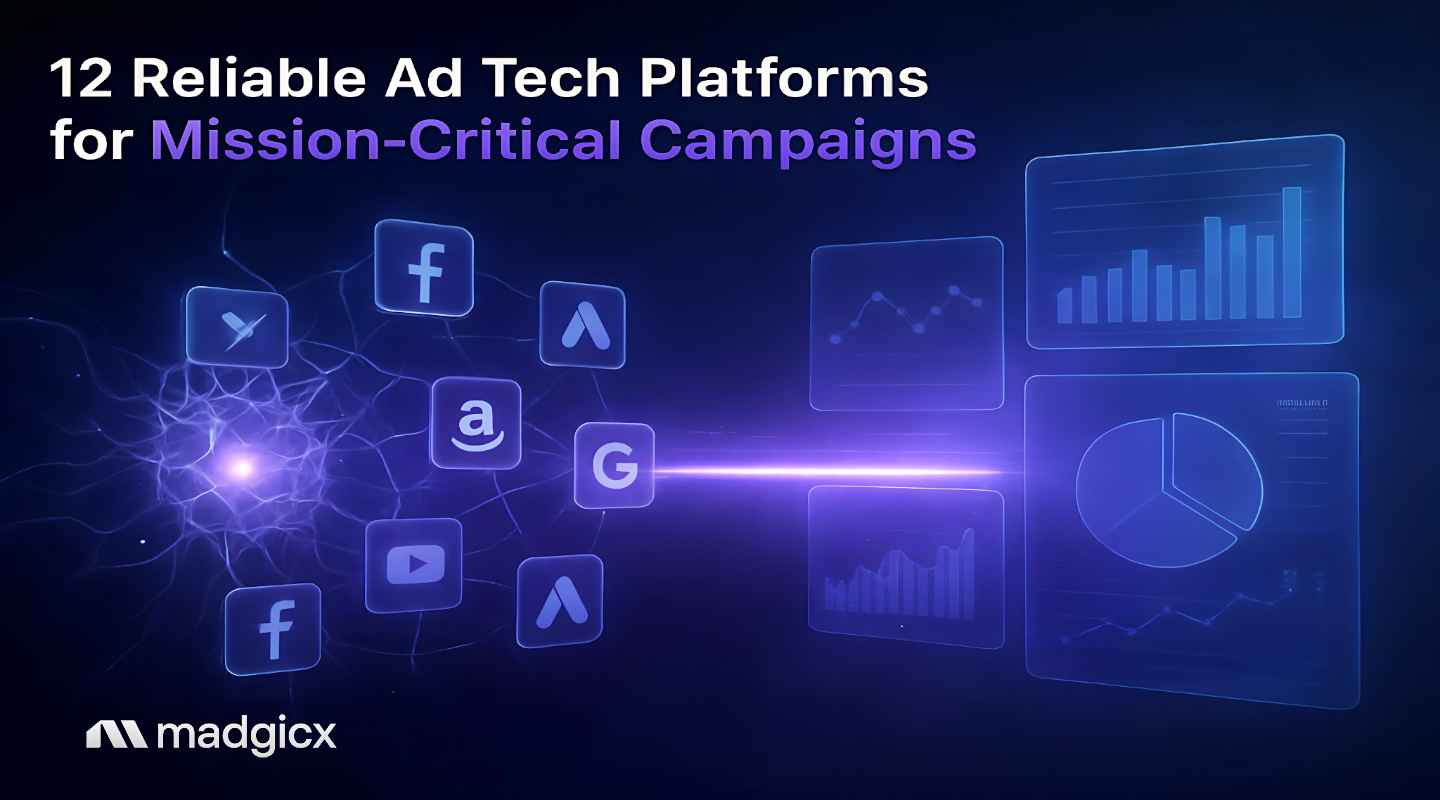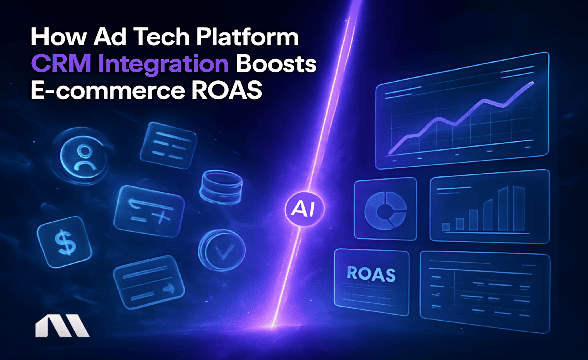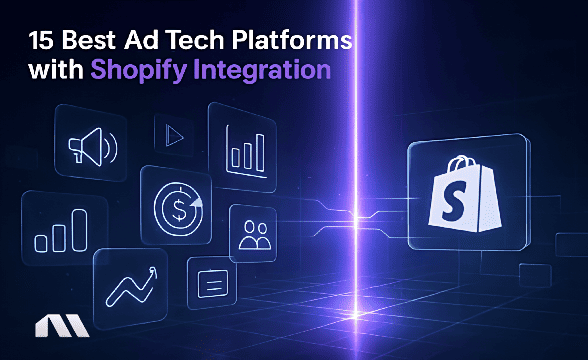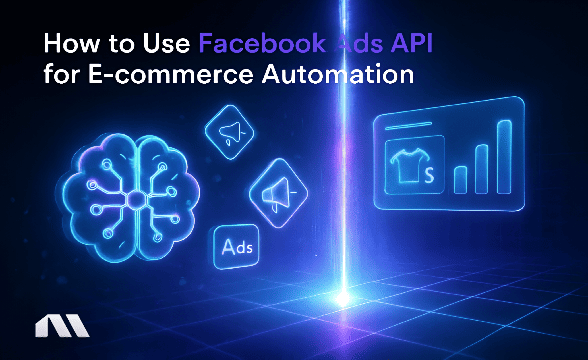Discover the 12 most reliable ad tech platforms for mission-critical campaigns. Learn uptime requirements and selection criteria to protect your revenue.
Picture this: You're Micro Kickboard, a successful e-commerce brand, and you've just launched your biggest campaign of the year. Everything's going perfectly—sales are pouring in, your ROAS is through the roof, and then... silence.
Your ad platform crashes. In just a few hours, you've lost $15,000 in revenue, and that's not counting the momentum you'll never get back.
Sound like a nightmare? For many e-commerce business owners, it's a harsh reality. Here's the thing that'll keep you up at night: the average cost of platform downtime ranges from $5,600 to $9,000 per minute. Fortune 1000 companies? They're looking at over $1 million per hour in losses.
When your biggest sales depend on reliable ad performance, choosing the wrong platform isn't just inconvenient—it's financially devastating.
A reliable ad tech platform for mission-critical campaigns must deliver 99.99%+ uptime (under 53 minutes downtime annually), sub-second response times, 24/7 enterprise support, robust fraud prevention, and proven scalability. Given that average downtime costs $5,600-$9,000 per minute and ad fraud represents 20-30% of spend, choosing a dependable platform is essential for protecting revenue during high-stakes campaigns.
We get it—you didn't start your business to become an expert in platform reliability metrics. But when your Black Friday sales, product launches, or seasonal campaigns are on the line, understanding which platforms can handle the pressure becomes crucial.
That's exactly what we're covering today.
What You'll Learn
By the end of this guide, you'll know exactly which platforms can handle your most critical campaigns without breaking a sweat. We're covering:
- 12 most reliable ad tech platforms ranked by uptime and mission-critical capabilities
- Exact costs of platform downtime and how to calculate your risk exposure
- Red flags to watch for during platform evaluation and demos
- Bonus: Pre-launch reliability checklist to prevent campaign failures
Let's dive in and make sure your next big campaign doesn't become your biggest headache.
What Makes an Ad Tech Platform "Mission-Critical Ready"
Not all ad platforms are created equal, especially when it comes to handling your most important campaigns. When we talk about "mission-critical ready," we're not just throwing around buzzwords—we're talking about specific, measurable capabilities that separate the pros from the pretenders.
Here's what truly mission-critical platforms deliver:
Uptime That Actually Matters
99.99%+ uptime isn't just a nice-to-have—it's the bare minimum. This translates to a maximum of 52 minutes of downtime per year. Compare that to platforms offering 99% uptime (87 hours of downtime annually), and you'll see why that extra 0.99% is worth fighting for.
Lightning-Fast Response Times
Sub-second response times during peak traffic aren't optional. When your campaign is scaling and every second counts, platform lag can mean the difference between capturing a conversion and losing a customer to a competitor.
Support That Doesn't Sleep
24/7 support with critical response times under 15 minutes. Your campaigns don't pause for weekends or holidays, and neither should your platform's support team.
Fraud Prevention That Works
Maintaining invalid traffic rates below 5% while processing millions of requests. With ad fraud projected to cost advertisers $41.4 billion in 2025, this isn't just about performance—it's about protecting your budget.
Scalability Under Pressure
The ability to handle 10x traffic spikes without breaking a sweat. Black Friday traffic surges have killed more campaigns than we'd like to count.
Pro Tip: Here's a reality check that most vendors won't tell you—there's a massive difference between 99% and 99.999% uptime. At 99%, you're looking at 87 hours of downtime per year. At 99.999%? Just 5 minutes. For a platform processing $100,000 in daily ad spend, that difference could mean saving hundreds of thousands in lost revenue.
The platforms we're about to explore don't just meet these standards—they exceed them. And for those managing ad tech platforms with marketing automation, these reliability standards become even more critical as your campaigns become increasingly interconnected.
The True Cost of Platform Failures
Let's talk numbers, because understanding the real financial impact of platform failures is what separates smart business owners from those learning expensive lessons the hard way.
When we mentioned that downtime costs between $5,600 and $9,000 per minute, that's not just for tech giants—that's the average across industries. For e-commerce businesses specifically, the stakes can be even higher during peak periods.
The Real Impact Scenario
Consider this scenario: You're running a Black Friday campaign generating $50,000 per hour in revenue. Your ad platform goes down for just 30 minutes during peak shopping hours.
You've just lost $25,000 in direct sales, but the real damage goes deeper. You've lost momentum, customer trust, and the opportunity cost of that traffic going to competitors who stayed online.
The Hidden Costs Add Up Fast
Beyond direct revenue loss, platform failures trigger a cascade of additional costs. Your team scrambles to implement backup strategies, customer service gets flooded with confused shoppers, and you might need to increase ad spend later to recapture lost momentum.
Many businesses report that the total impact of a platform failure can be 3-5x the immediate revenue loss.
Fortune 1000 Reality Check
Large enterprises face even steeper costs, with downtime averaging over $1 million per hour. While your business might not be Fortune 1000 scale, the principle remains: the bigger your campaigns, the bigger your risk.
Ad Fraud: The Silent Revenue Killer
Platform reliability isn't just about uptime—it's about protecting your budget from fraud. With invalid traffic rates ranging from 20-30% on unreliable platforms, you could be losing significant budget to fake clicks and impressions without even knowing it.
Pro Tip: Calculate your downtime risk right now. Take your average hourly revenue, multiply by potential downtime hours, and you'll see exactly why platform reliability deserves a spot in your budget planning. For most e-commerce businesses, investing in a more reliable platform pays for itself after preventing just one significant outage.
Enterprise-Grade Platforms (99.99%+ Uptime)
When your campaigns absolutely cannot fail, these enterprise-grade platforms deliver the reliability that keeps revenue flowing even during the most demanding periods.
Google Ad Manager
Google Ad Manager stands as the industry standard for enterprise reliability, and there's a reason why major publishers and advertisers trust it with their most critical campaigns.
What Makes It Mission-Critical: Google's infrastructure handles over 1 million requests per second with sub-100ms latency, backed by a 99.99% uptime guarantee that includes financial penalties if they fall short. Their global redundancy means if one data center experiences issues, your campaigns seamlessly continue running from backup locations.
Key Reliability Features:
- Real-time monitoring with automatic failover
- Enterprise-grade security with SOC2 compliance
- Dedicated support teams for high-volume accounts
- Fraud prevention systems maintaining invalid traffic rates well below industry averages
Best For: Large-scale campaigns where maximum reliability is non-negotiable, particularly for businesses where advertising represents a significant portion of revenue. If you're spending $100K+ monthly and need exceptional reliability, this is your platform.
The Reality Check: While Google Ad Manager delivers exceptional reliability, it comes with complexity. Implementation typically takes 3-6 months, and you'll need dedicated technical resources to maximize its capabilities.
The Trade Desk
The Trade Desk has built its reputation on transparency and reliability in the programmatic space, making it a go-to choice for advertisers who need both performance and dependability.
Reliability Foundation: With 99.9% uptime and the ability to process billions of bid requests daily, The Trade Desk's infrastructure is designed for scale. Their transparent reporting means you'll know immediately if something's not performing as expected, rather than discovering issues days later.
Mission-Critical Advantages:
- Cross-channel optimization ensures campaigns continue performing even if one channel experiences issues
- Fraud prevention technology and transparent fee structure protect from both technical failures and budget waste
- 24/7 support with dedicated account teams for enterprise clients
Best For: Cross-channel campaigns requiring transparency and reliability across multiple platforms. Particularly strong for businesses that need detailed reporting and control over their programmatic buying.
Adobe Advertising Cloud
Adobe's enterprise solution brings together cross-channel advertising with the reliability standards you'd expect from a Fortune 500 software company.
Enterprise Infrastructure: SOC2 certified with GDPR compliance built-in, Adobe Advertising Cloud delivers enterprise-grade security alongside reliability. Their integrated approach means fewer potential failure points compared to cobbled-together solutions.
Key Reliability Features:
- Cross-channel optimization with unified reporting
- Enterprise security protocols and dedicated support for high-volume accounts
- Integration with other Adobe products creates a more stable ecosystem
Best For: Large enterprises needing integrated marketing stack reliability, particularly those already invested in Adobe's ecosystem. The unified approach reduces complexity and potential failure points.
Scalability Proof: Adobe handles campaigns for some of the world's largest brands, with infrastructure designed to scale during peak periods without performance degradation.
Mediaocean
Specifically designed for mission-critical campaigns in CPG and enterprise environments, Mediaocean focuses on workflow automation and reliability.
Mission-Critical Design: 99.9% uptime with infrastructure specifically designed for complex campaign automation workflows. Their enterprise-grade security and dedicated support teams understand the stakes involved in large-scale campaigns.
Workflow Reliability:
- Automated workflows reduce human error while maintaining campaign performance during peak periods
- Fraud prevention and budget protection features ensure campaigns stay on track during unexpected traffic spikes
- Serving Fortune 500 clients with campaigns that can't afford downtime
Best For: Complex campaign workflows requiring reliability, particularly for CPG brands and large enterprises with sophisticated campaign requirements.
These enterprise platforms represent the gold standard for reliability, but they come with enterprise complexity and pricing. For businesses focused primarily on Meta advertising, specialized platforms like those we'll explore next might offer better reliability-to-complexity ratios.
Specialized Reliable Platforms
While enterprise platforms offer broad reliability, specialized platforms can deliver focused performance for specific use cases. Here's where targeted expertise meets mission-critical reliability.
Madgicx (Meta Specialist)
When Meta advertising represents 50% or more of your ad spend, Madgicx delivers specialized reliability designed for Meta advertising focus.
AI-Powered Reliability: Unlike platforms that require manual intervention during issues, Madgicx's AI helps optimize your campaigns around the clock, designed to adapt to Meta platform fluctuations or temporary instabilities. This artificial intelligence ad tech platform for campaigns approach helps protect your campaigns with reduced manual oversight.
Mission-Critical Meta Features:
- Real-time anomaly detection catches performance issues before they impact your budget
- Automated budget protection prevents runaway spending during platform glitches
- Creative automation ensures your ads stay fresh and performing even during extended periods
Unique Reliability Advantage: While other platforms might pause or struggle during Meta API changes, Madgicx's specialized focus means it adapts quickly to platform updates. This approach has helped thousands of e-commerce businesses maintain performance during Meta's frequent updates.
Best For: E-commerce brands where Meta represents the majority of ad spend and AI-powered optimization is crucial for scaling. Particularly valuable for businesses that can't afford dedicated campaign managers monitoring platforms 24/7.
Scalability Without Complexity: Unlike enterprise platforms requiring months of implementation, Madgicx delivers enterprise-level reliability with straightforward setup, making it ideal for growing businesses that need reliability without enterprise complexity.
Start with the free trial here.
AdButler
For businesses requiring custom enterprise solutions with guaranteed reliability, AdButler delivers 99.99% uptime with the flexibility to build exactly what you need.
Custom Reliability: 99.99% uptime guarantee backed by custom solutions that fit your specific requirements. Their approach of building 70% faster than traditional development means you get reliability without waiting months for implementation.
Enterprise SLA: Unlike platforms with vague uptime promises, AdButler provides clear SLA agreements with penalty clauses. They handle 500+ billion monthly impressions while maintaining their uptime guarantees.
Revenue Impact: Clients report $10-50 million in incremental revenue from AdButler's custom solutions, demonstrating that specialized reliability can directly impact bottom-line results.
Best For: Businesses with unique requirements that standard platforms can't accommodate, particularly those needing custom integrations while maintaining enterprise-level reliability.
Criteo
Criteo's performance marketing platform combines AI optimization with proven scale reliability, making it a solid choice for retail and e-commerce campaigns.
Scale Reliability: Processing 950 billion daily matches with peak capacity of 270 million transactions per second, Criteo's infrastructure is battle-tested at massive scale. This level of proven performance means your campaigns stay stable even during unexpected traffic surges.
AI-Powered Stability: Their AI optimization is designed to adapt to market fluctuations or competitive changes, providing a layer of AI-assisted reliability that reduces the need for constant manual oversight.
Retail Media Strength: Particularly strong for retail media campaigns where reliability during peak shopping periods is crucial. Their experience with major retailers means they understand the stakes involved in mission-critical e-commerce campaigns.
Best For: Retail and e-commerce performance campaigns requiring proven scale reliability, especially for businesses that need AI optimization combined with enterprise-level infrastructure.
Pro Tip: These specialized platforms prove that you don't always need enterprise complexity to get enterprise reliability. For businesses with focused needs—particularly those heavily invested in specific channels like Meta—specialized platforms often deliver superior reliability with less operational overhead.
The key is matching your platform choice to your specific reliability requirements and campaign focus, rather than assuming bigger always means better.
Platform Selection Framework
Choosing the right platform isn't just about features and pricing—it's about asking the right questions before you're locked into a contract. Here's your framework for evaluating platform reliability before it's too late to switch.
Pre-Demo Questions Checklist
Before you sit through another sales presentation, get these answers in writing:
"What was your longest outage in the past 12 months?" This question separates honest vendors from those hiding problems. Look for specific dates, duration, and what they learned from the experience. If they can't provide this information immediately, that's a red flag.
"What's your average time to restore service during critical issues?" Mean time to recovery (MTTR) matters more than uptime promises. A platform with 99.9% uptime but 4-hour recovery times could cost you more than one with 99.8% uptime and 15-minute recovery.
"Do you provide a transparent status page?" Reliable platforms aren't afraid to show their status publicly. If they don't have a status page or won't share it, they're probably hiding something.
"What redundancy architecture do you use?" You want to hear about multiple data centers, automatic failover, and load balancing. Vague answers about "cloud infrastructure" aren't sufficient for mission-critical campaigns.
"What's included in your SLA with penalty clauses?" Real SLAs include financial penalties when they fail to meet uptime commitments. If there are no penalties, the SLA is just marketing copy.
Red Flags During Evaluation
Watch for these warning signs that could indicate reliability problems down the road:
- Vendor hesitates to provide uptime SLA in writing: If they won't commit to specific uptime guarantees with penalties, they probably can't deliver them consistently.
- No transparent status page or outage history: Platforms confident in their reliability showcase their uptime publicly. Those hiding their status usually have something to hide.
- Support only available during business hours: Your campaigns don't pause for weekends. Neither should your platform's support team.
- Cannot provide client references for high-volume campaigns: If they can't connect you with similar businesses running comparable campaign volumes, they might not have the experience to handle your scale.
- Vague answers about infrastructure: Reliable platforms can explain their architecture clearly. If they deflect technical questions or provide only marketing speak, dig deeper.
Reliability Assessment Scorecard
Use this weighted scoring system to objectively compare platforms:
Uptime Guarantee (30% of total score):
99.99% = 100 points
99.9% = 80 points
99% = 60 points
Anything less = 0 points
Support Response Times (25% of total score):
<15 minutes critical response = 100 points
<1 hour = 80 points
<4 hours = 60 points
Business hours only = 20 points
Fraud Prevention Rates (20% of total score):
<5% invalid traffic = 100 points
<10% = 80 points
<15% = 60 points
>15% = 20 points
Scalability Proof (15% of total score):
Handles 10x traffic spikes = 100 points
5x = 80 points
2x = 60 points
Unclear = 20 points
Transparent Reporting (10% of total score):
Real-time status page + historical data = 100 points
Status page only = 70 points
On-request status = 40 points
No transparency = 0 points
A platform scoring below 80% total shouldn't handle your mission-critical campaigns. Those scoring 90%+ are worth serious consideration, especially if they excel in areas most important to your business.
This framework helps you move beyond vendor promises to evaluate actual reliability capabilities. For businesses exploring ad tech platforms with analytics integration, these reliability standards become even more critical as your data dependencies increase.
Implementation Best Practices
Getting your platform selection right is only half the battle—implementing it properly determines whether you'll actually achieve the reliability you're paying for.
Mission-Critical Launch Checklist
Before you trust any platform with your most important campaigns, complete this essential checklist:
Status Page Monitoring Configured: Set up automated alerts for platform status changes. You shouldn't learn about outages from declining campaign performance—you should know before they impact your campaigns.
Alert Thresholds Set for Performance Anomalies: Configure alerts for unusual spending patterns, performance drops, or traffic spikes. The goal is catching issues in minutes, not hours.
Backup Campaign Strategy Documented: Have a written plan for what happens if your primary platform fails. This includes backup platforms, emergency contact procedures, and decision-making authority during crises.
Support Escalation Contacts Saved: Know exactly who to call during emergencies, including after-hours contacts and escalation procedures. Test these contacts during your trial period—don't wait for an emergency to discover they don't work.
Failover Testing Completed: Actually test your backup procedures before you need them. Run a small campaign through your backup platform and ensure your team knows the process.
Timeline Expectations (The Reality Check)
Here's what vendors won't tell you about implementation timelines:
Standard Integration Reality: While vendors quote 1-3 months, actual implementation typically takes 3-9 months for full optimization. Budget accordingly and don't launch mission-critical campaigns until you've completed thorough testing.
Enterprise with Dedicated Support: Even with dedicated support, expect 8-16 weeks for proper implementation. Enterprise platforms require more setup time, but the reliability payoff justifies the investment.
Budget Reality: Plan for 15-30% above quoted prices for full implementation. Hidden costs include training, integration work, and the inevitable customizations you'll need for optimal performance.
Testing Period: Allocate at least 30 days for testing with non-critical campaigns before trusting the platform with your most important revenue streams.
Pro Tip: The platforms that deliver true mission-critical reliability require proper implementation. Rushing this process to meet campaign deadlines often results in the exact reliability problems you're trying to avoid.
For businesses implementing ad tech platform for campaign management, following these implementation best practices becomes crucial for maintaining the automated workflows that drive consistent performance.
Remember: the most reliable platform in the world won't help if it's not implemented properly. Take the time to do it right, and you'll avoid the expensive lessons that come from cutting corners on mission-critical infrastructure.
Frequently Asked Questions
What uptime percentage do I actually need for mission-critical campaigns?
For truly mission-critical campaigns like product launches or Black Friday sales, target 99.99% minimum uptime, which translates to a maximum of 52 minutes of downtime per year. For standard always-on campaigns, 99.9% might suffice, but calculate your specific downtime cost first.
Here's the math: if your campaigns generate $10,000 per hour and you face 43 minutes of monthly downtime (typical for 99.9% uptime), you're risking $7,167 in monthly revenue losses. That calculation usually makes the premium for 99.99% uptime platforms look like a bargain.
How do I calculate my downtime risk?
Start with your average hourly revenue from advertising, then multiply by potential downtime hours. For example, if you generate $15,000 per hour in revenue and face 8 hours of annual downtime (99.9% uptime), your annual risk is $120,000.
Don't forget to factor in opportunity costs—lost momentum, customer trust, and competitive advantage during outages often multiply the direct revenue impact by 3-5x.
Should I use multiple platforms to reduce risk?
Yes, many successful businesses use a primary platform for 70-80% of their spend with a backup platform maintaining 20-30% for business continuity. This approach provides redundancy without the complexity of managing equal splits across platforms.
The key is ensuring your backup platform can scale quickly if needed. Test this capability regularly—you don't want to discover scaling limitations during an actual emergency.
What's the difference between uptime guarantees and actual performance?
SLA guarantees represent minimums with penalty clauses, not typical performance. Always ask for 12-month actual uptime history, not just SLA promises. The best platforms consistently exceed their guarantees.
For instance, a platform guaranteeing 99.9% uptime might actually deliver 99.95%, while another with the same guarantee might barely meet 99.9%. That difference could save you thousands in downtime costs.
How important is 24/7 support for mission-critical campaigns?
Critical. Platform issues don't respect business hours, and Black Friday problems won't wait until Monday morning. Ensure response times under 15 minutes for critical issues and test their support during your trial period.
Ask specific questions: "If my campaigns stop delivering at 2 AM on Sunday, how quickly will someone respond?" Get this commitment in writing as part of your service agreement.
Protect Your Revenue with the Right Platform Choice
Mission-critical campaigns demand mission-critical platforms—there's no middle ground when your biggest revenue opportunities are on the line. The difference between 99.9% and 99.99% uptime could mean the difference between a successful product launch and a costly failure that impacts your business for months.
Throughout this guide, we've seen how platform reliability directly impacts your bottom line. From Micro Kickboard's $15,000 loss to the broader industry reality of $5,600-$9,000 per minute in downtime costs, the financial stakes are clear.
Choosing the right platform isn't just about features or pricing—it's about protecting the revenue that keeps your business growing.
Your Platform Decision Framework
For businesses heavily invested in Meta advertising, specialized platforms like Madgicx offer AI-powered optimization that helps protect your campaigns even during platform fluctuations. For multi-channel enterprises requiring maximum reliability, platforms like Google Ad Manager or The Trade Desk provide the proven infrastructure that handles scale without compromise.
The key is matching your platform choice to your specific reliability requirements, campaign focus, and risk tolerance. Use our reliability assessment scorecard to evaluate your current platform objectively, and don't wait for a failure to discover your platform isn't mission-critical ready.
Your Next Step
Audit your current platform using the framework we've provided. Calculate your actual downtime risk, test your support response times, and ensure you have backup procedures documented. Your future self—and your revenue—will thank you for taking platform reliability seriously before it becomes a costly lesson.
Remember: in the world of mission-critical campaigns, the most expensive platform is the one that fails when you need it most.
For businesses ready to implement ad tech platform for real-time optimization, the reliability standards we've covered become the foundation for sustained campaign success.
Managing billion-impression campaigns across Meta requires specialized infrastructure and AI-powered optimization. Madgicx's AI Marketer automatically scales your Meta campaigns while maintaining performance, handling everything from budget optimization to creative testing at enterprise volume.
Digital copywriter with a passion for sculpting words that resonate in a digital age.







.avif)







